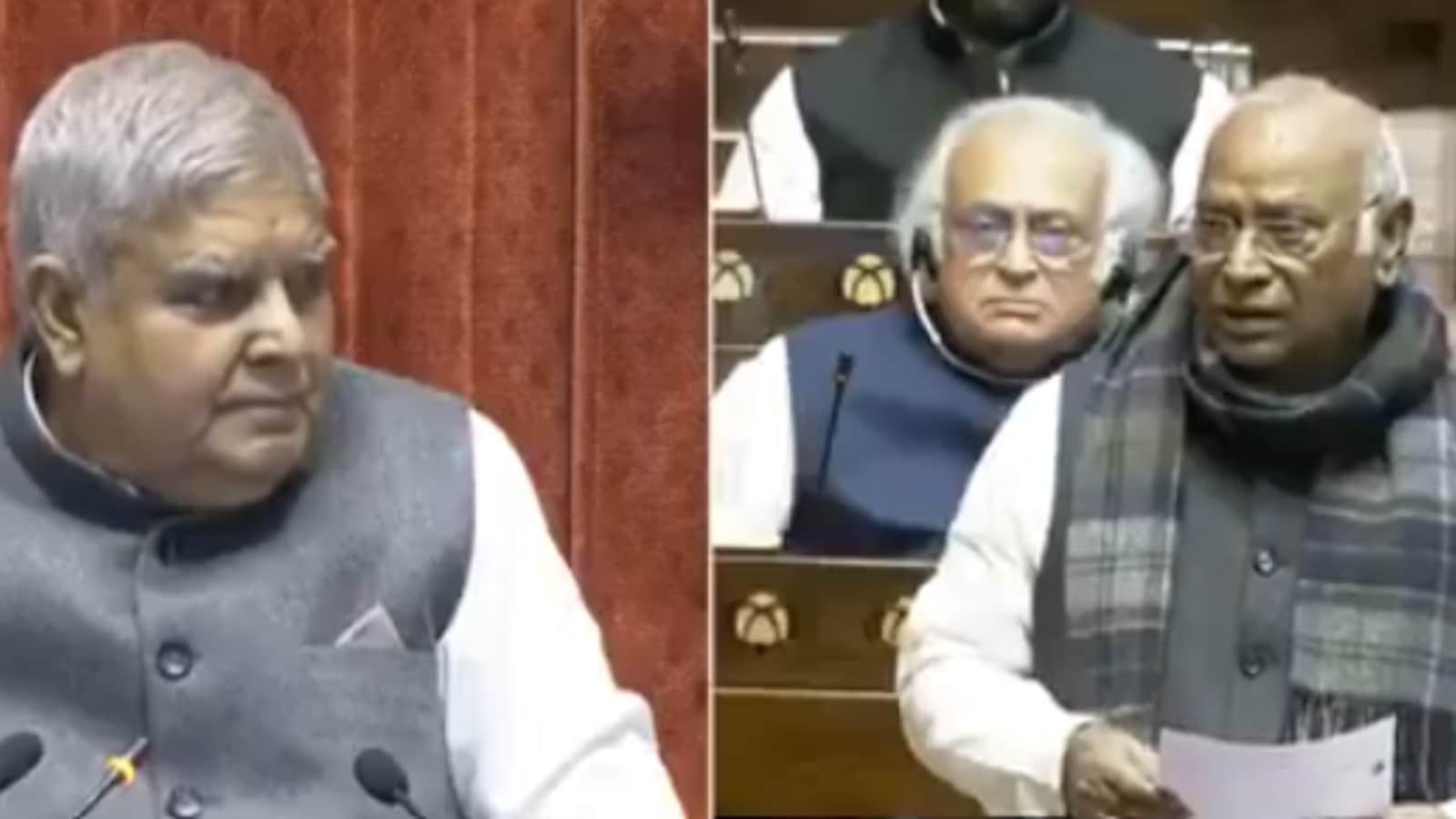 |
|
The Rajya Sabha, India's upper house of parliament, witnessed significant disruptions on Thursday during the Budget Session. The source of the commotion was the presentation of the Joint Parliamentary Committee (JPC) report on the Waqf (Amendment) Bill. The bill itself, aiming to amend existing legislation concerning the administration of Waqf properties (religious endowments primarily belonging to the Muslim community), has been a subject of considerable debate and controversy. The presentation of the JPC report, intended to offer recommendations based on their investigation, instead ignited a fresh wave of political tension.
The immediate flashpoint was the claim made by Mallikarjun Kharge, the Leader of Opposition in the Rajya Sabha, that dissenting opinions and crucial remarks had been deliberately omitted from the final version of the JPC report. Kharge, a prominent figure within the Indian National Congress party, vehemently denounced the alleged act as 'condemnable' and fundamentally 'anti-democratic'. His strong words highlighted the deep-seated concerns regarding the transparency and impartiality of the JPC process. The assertion that dissenting voices were silenced raised serious questions about the credibility of the report and the integrity of the parliamentary process itself.
Kharge's accusation was not confined to simply stating the omission of dissenting voices. He went further, labeling the report as 'farzi' (fake), a serious allegation that directly challenges the authority and the findings of the JPC. He specifically pointed out the exclusion of statements from individuals who were deemed relevant stakeholders in the discussions surrounding the Waqf (Amendment) Bill. This implication of a deliberate attempt to manipulate the report’s content heightened the political stakes. The use of such strong language indicated a concerted effort to discredit the report and potentially obstruct its further consideration.
The immediate reaction in the Rajya Sabha was one of disruption and uproar. Opposition MPs expressed their outrage, leading to temporary adjournments of the proceedings. The scene underscored the deep divisions within the Indian Parliament on this highly sensitive issue. The controversy highlights the complex interplay between religious, political, and legal concerns surrounding the management of Waqf properties in India. The debate is not merely a procedural one; it touches upon fundamental issues of governance, transparency, and the rights of religious communities.
Beyond the immediate political fallout, the episode raises several important questions about parliamentary processes and the mechanisms for ensuring accountability and fairness. The allegation of the suppression of dissenting voices raises serious concerns about the integrity of the parliamentary process. This event serves as a reminder of the vital role of opposition parties in holding the government accountable and ensuring a robust and transparent legislative process. The demand for the report to be rejected and sent back for review underscores the gravity of the accusations and the concerns raised by the Opposition.
The Waqf (Amendment) Bill itself, before the JPC’s involvement, was a subject of heated discussions. Concerns were raised regarding the potential impact on the autonomy and administration of Waqf properties. The debate now shifts to the integrity of the parliamentary committee that examined the bill and the implications of the alleged manipulation of the report. The incident highlights the critical importance of maintaining transparency and inclusivity in parliamentary processes to ensure public trust and confidence in the legislative process. The future course of the Waqf (Amendment) Bill will now depend on how the government and the Parliament respond to the Opposition’s allegations and demands for greater accountability.
This incident underscores the broader challenges of balancing the need for legislative efficiency with the imperative to maintain transparency and fairness in the legislative process. The controversy surrounding the JPC report on the Waqf (Amendment) Bill will undoubtedly continue to be a significant political issue in India, with ramifications extending far beyond the immediate parliamentary proceedings. The way the situation is handled will be a crucial indicator of the government’s commitment to transparency, accountability, and respect for dissenting voices in the decision-making process. The ongoing debate also emphasizes the necessity for robust mechanisms to ensure that the concerns and views of all stakeholders are considered fairly and fully throughout the legislative process.
The coming days and weeks will likely see further developments, as the political parties involved grapple with the implications of this controversy. The demand for the rejection of the report and a re-examination of the process are likely to fuel further debate and potentially further disruptions within the Rajya Sabha. The handling of this situation will not only affect the fate of the Waqf (Amendment) Bill itself but will also shape public perceptions regarding the transparency and fairness of India's parliamentary system. The focus will be on how the government and the Parliament respond to the serious allegations of manipulation and the calls for greater transparency in legislative matters.
